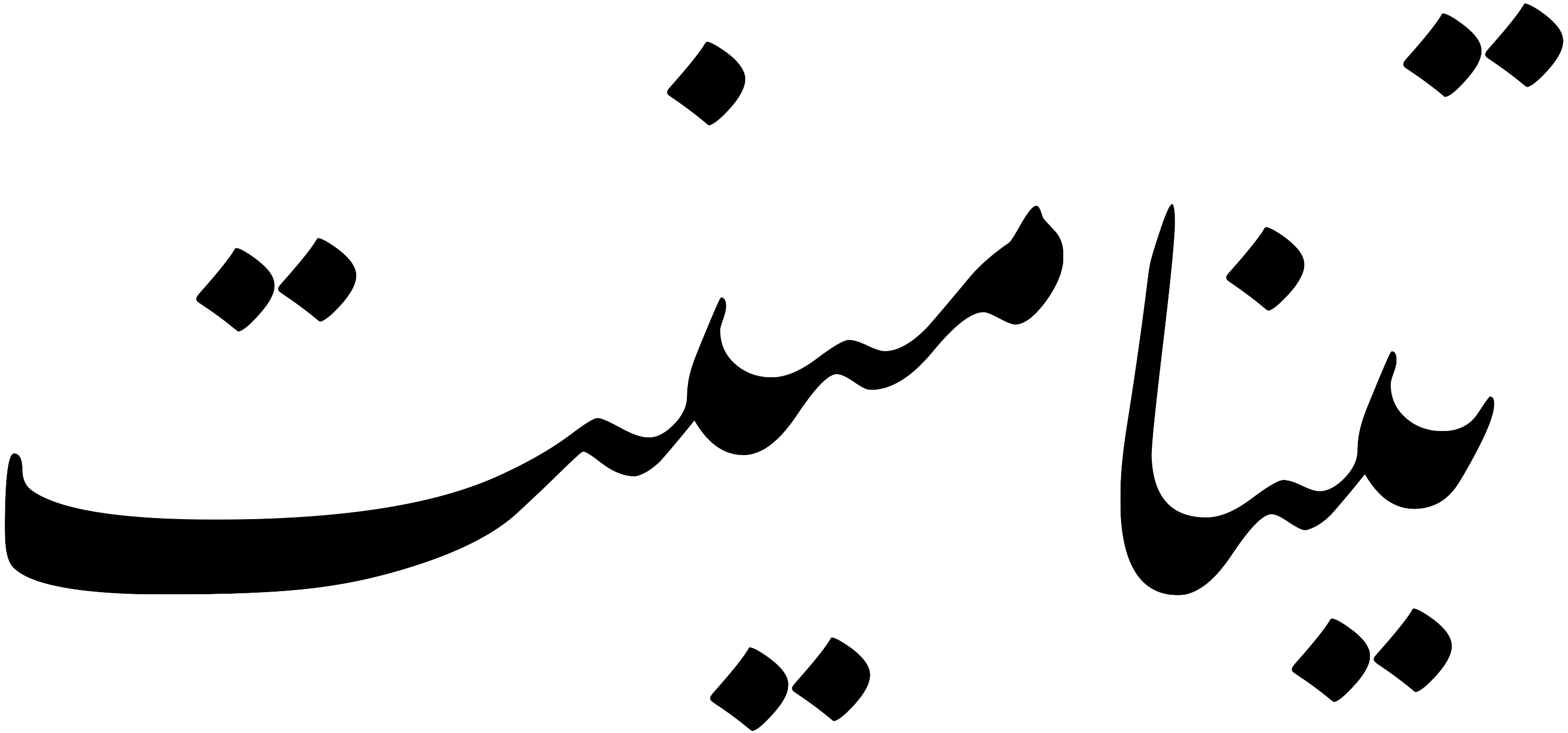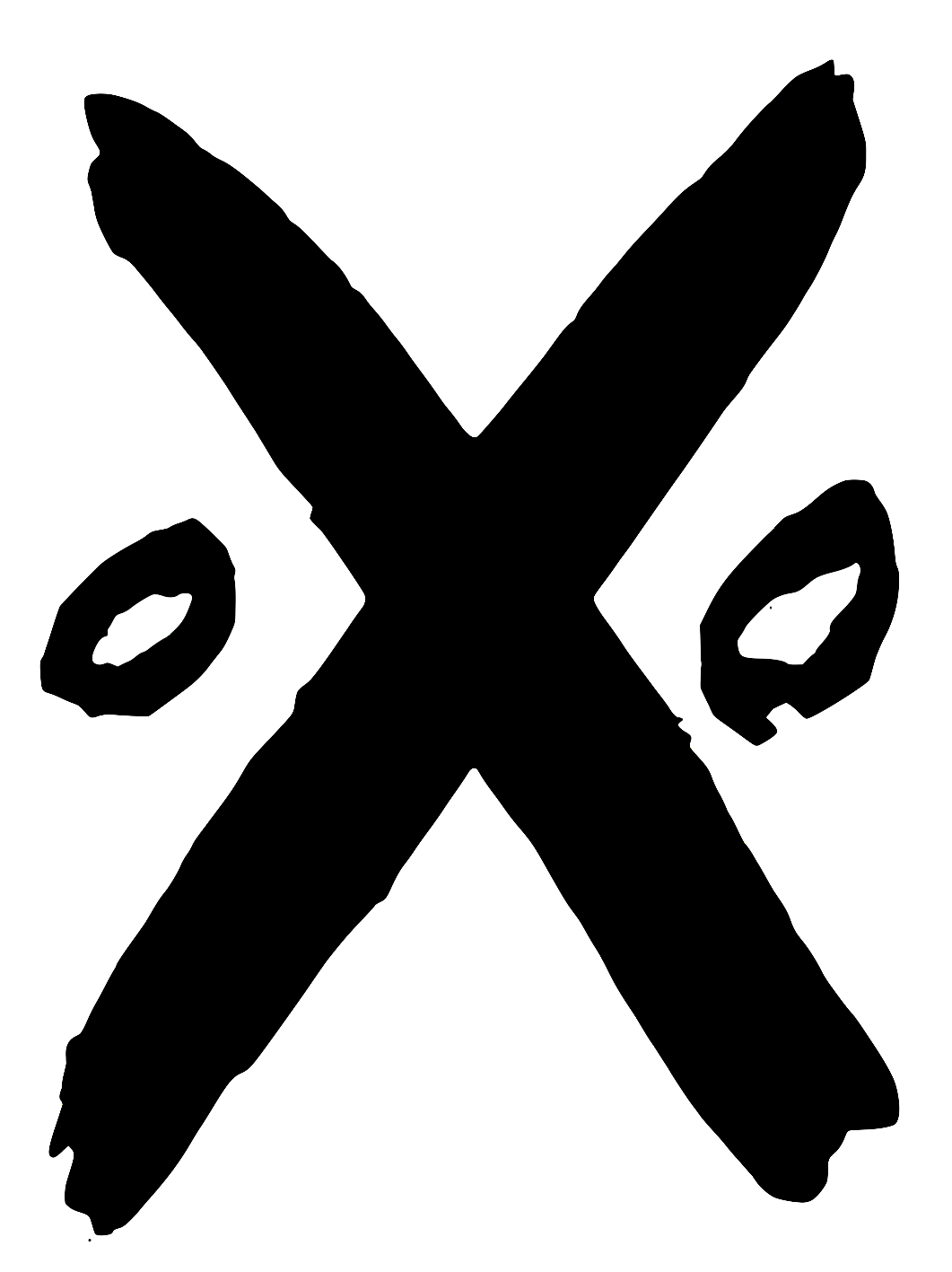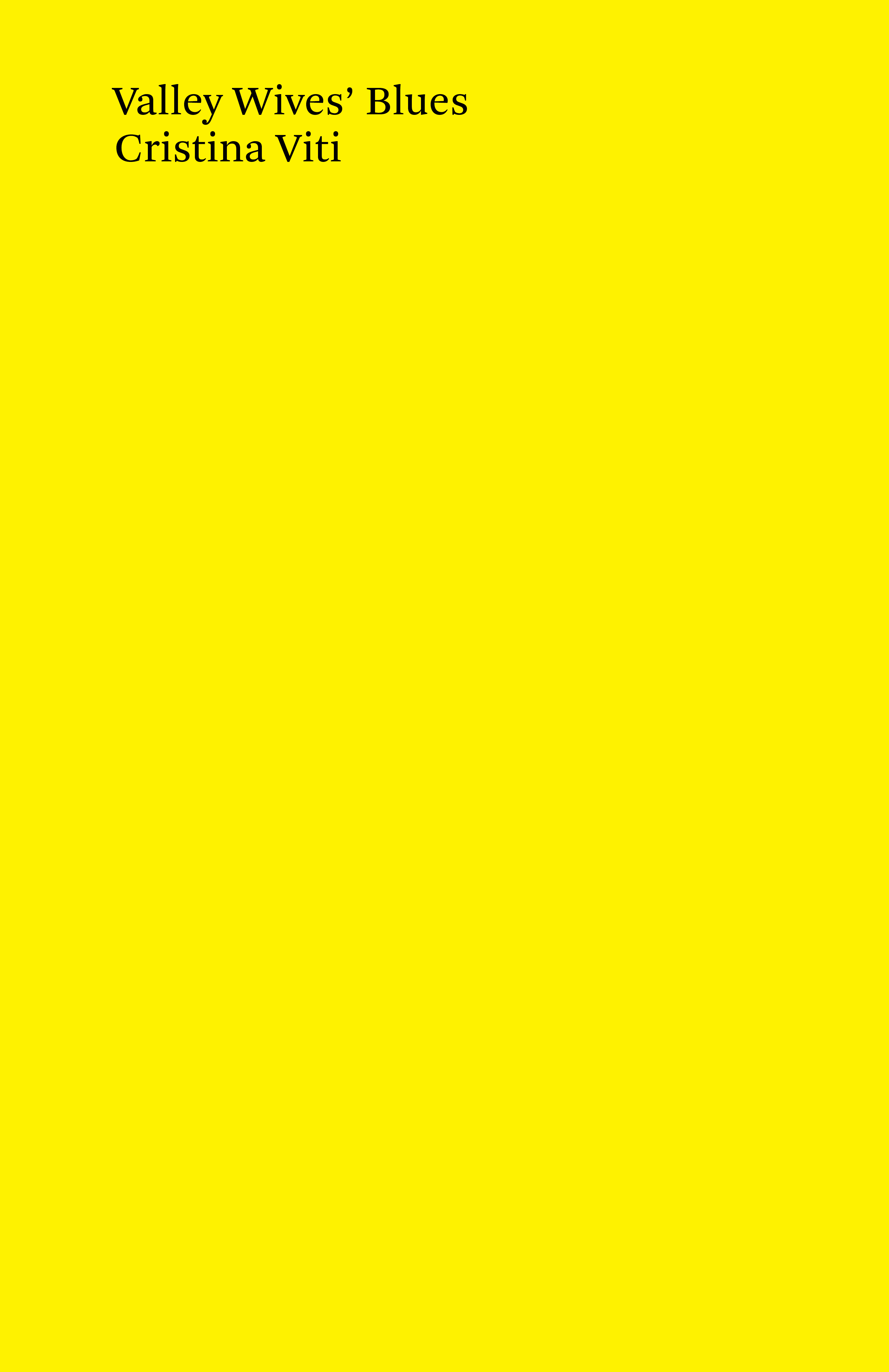
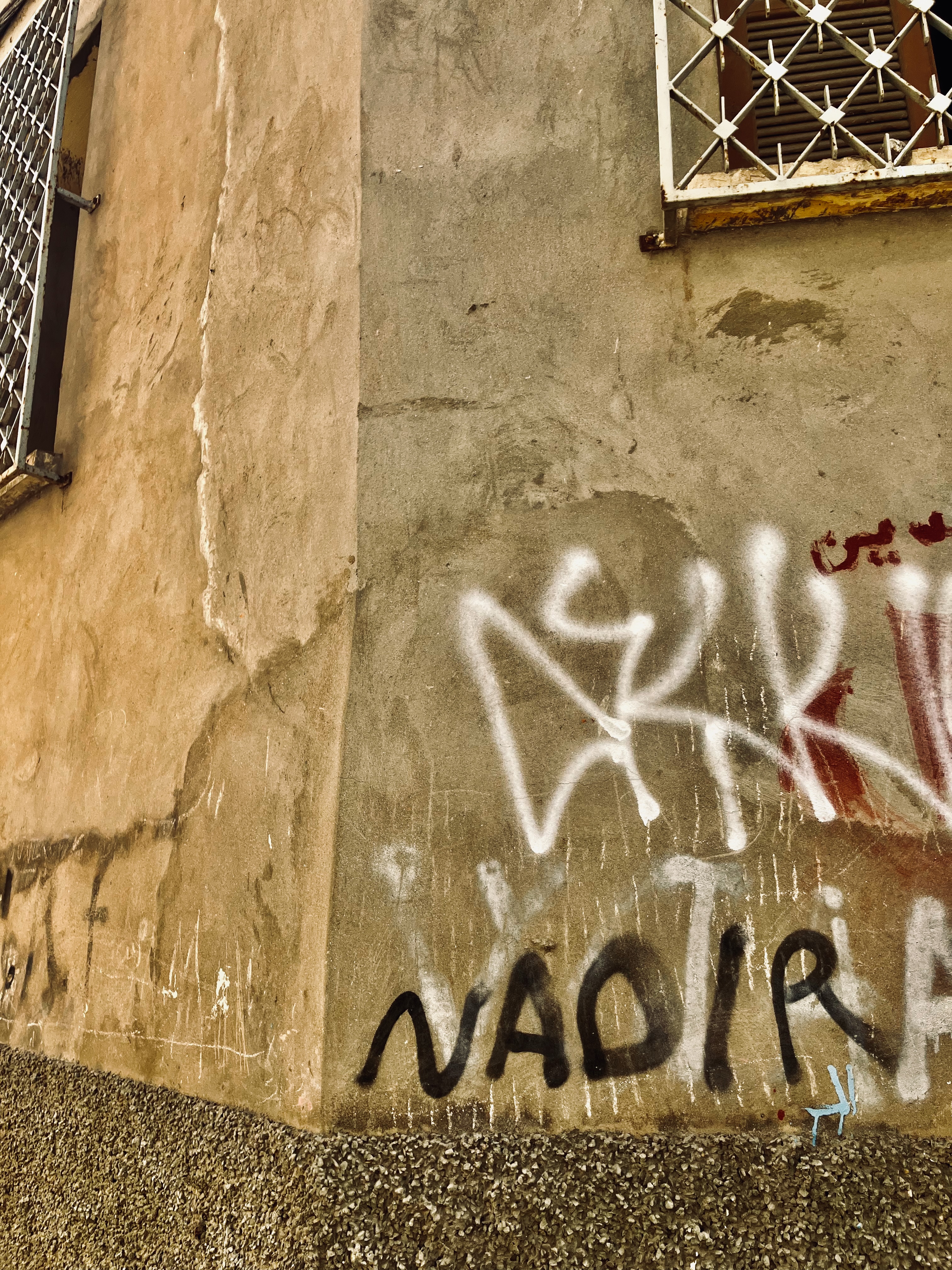
Tangier / Jaeckle, © 2025.
Valley Wives’ Blues
Cristina Viti
Tenement Press #27
978-1-917304-14-6
75pp [Approx.]
£12.50
PREORDER DIRECT FROM TENEMENT HERE
Publishing 8th May 2026
Around the embers of dying languages,
bands of desos, witchdoctors and boy-girls
who just wanna have fun sing an anti-elegy
for the wrecked ecologies of survival tuned
to the drone reed of care work.
Cristina Viti
Tenement Press #27
978-1-917304-14-6
75pp [Approx.]
£12.50
PREORDER DIRECT FROM TENEMENT HERE
Publishing 8th May 2026
Around the embers of dying languages,
bands of desos, witchdoctors and boy-girls
who just wanna have fun sing an anti-elegy
for the wrecked ecologies of survival tuned
to the drone reed of care work.
None of us have roots: who knows where we’re from.
Our roots germinate day by day. Those who live rather than
vegetating put out thriving roots, those who do not love life
see them wither as they sprout.
Pier Paolo Pasolini,
in interview with Davide Lajolo, 1 July 1959
(Lajolo, Ventiquattro anni, 1981)
The sacred idiom shorn of its referents and so of its reality.
Cormac McCarthy,
The Road (2006)
To write is not to tell stories. It is the opposite of telling stories.
Marguerite Duras,
La vie matérielle / Practicalities (1987)
So they want you to tell them about the valley wives? Tell them. Pig shit & scalding bleach, a crust of hard cheese held in black rubber gloves, swarms of flies on curdling milk in the blank of endless summer afternoons, the queues outside the canneries begging for work & the injuries at work, long butchering poles landing on their legs & crushing their veins as pig blood drains into the dead dry of the January frost, the chastity belts when the men go away, the contraceptive coils that bleed them anaemic & the curve of alcohol sugar in the men’s blood: its peak with the love-struck eyes & winking laughter & then the sudden drop, the bitterness returning freighted with words & tears like a clapped-out horse riding a poor man home. They soon learn to hook onto it at the right time & lead it into fun & games or just wait it out no matter how much viciousness or unfounded accusation, because any word they might place at the wrong point in the curve means having to waste money the next day to buy make-up for the eye—so there they sit, patient, through the dying of long summer nights, sit it out at the outside stone tables praying to the stars or knitting songs in their heads as the men sob the bitter out. After the films there are fake new words that hurt the most: ‘I love you’—words that had kept all the high beauty of being spoken only in gestures or smiles or stolen glances but have now become spent coins or stones in a slingshot. I who love you! & I love you! & each time the valley wives flinch in their offended restraints as if hit by a fist in their bellies or a boot in their mouths. The men sitting up in bed at three in the morning, smoking & asking them to apologize for causing themselves to be beaten so that at times they long more than anything else for them just to say, forgive me or not, I hit you because I could. Because you were there, because I’m bigger. Because part of a wife’s work is taking the blame. I hit you cause life is shit & it’s your fault. Tell them of dreaming at night of the valley wives, they whose dream of a thing lives in long reveries of spent tears by sun-cracked windows while the men sleep it off after the five-night shifts on truck roads or cattle ruts or black-market mountain paths, feet in rags for winter, long black toenails sunk into uphill moss in summer & the wives’ solid meals reliable as sunrise, their dream of a thing in an unbroken state as if of inspired stupor, the stubborn quiet pride of the spotless whites, sharp-creased aprons & trousers & shirts, deep-polished furniture with its lace covers & the poor smiling dolls in national costumes sitting on the sheen of orange-pink quilts carefully rearranged each morning. Interludes of sunlight through glass, throngs of yellow roses singing in the sunlight outside a back yard door & each hour’s work like a clean sphere of blue water.
[...]
![]()
![]()
![]()
Our roots germinate day by day. Those who live rather than
vegetating put out thriving roots, those who do not love life
see them wither as they sprout.
Pier Paolo Pasolini,
in interview with Davide Lajolo, 1 July 1959
(Lajolo, Ventiquattro anni, 1981)
The sacred idiom shorn of its referents and so of its reality.
Cormac McCarthy,
The Road (2006)
To write is not to tell stories. It is the opposite of telling stories.
Marguerite Duras,
La vie matérielle / Practicalities (1987)
So they want you to tell them about the valley wives? Tell them. Pig shit & scalding bleach, a crust of hard cheese held in black rubber gloves, swarms of flies on curdling milk in the blank of endless summer afternoons, the queues outside the canneries begging for work & the injuries at work, long butchering poles landing on their legs & crushing their veins as pig blood drains into the dead dry of the January frost, the chastity belts when the men go away, the contraceptive coils that bleed them anaemic & the curve of alcohol sugar in the men’s blood: its peak with the love-struck eyes & winking laughter & then the sudden drop, the bitterness returning freighted with words & tears like a clapped-out horse riding a poor man home. They soon learn to hook onto it at the right time & lead it into fun & games or just wait it out no matter how much viciousness or unfounded accusation, because any word they might place at the wrong point in the curve means having to waste money the next day to buy make-up for the eye—so there they sit, patient, through the dying of long summer nights, sit it out at the outside stone tables praying to the stars or knitting songs in their heads as the men sob the bitter out. After the films there are fake new words that hurt the most: ‘I love you’—words that had kept all the high beauty of being spoken only in gestures or smiles or stolen glances but have now become spent coins or stones in a slingshot. I who love you! & I love you! & each time the valley wives flinch in their offended restraints as if hit by a fist in their bellies or a boot in their mouths. The men sitting up in bed at three in the morning, smoking & asking them to apologize for causing themselves to be beaten so that at times they long more than anything else for them just to say, forgive me or not, I hit you because I could. Because you were there, because I’m bigger. Because part of a wife’s work is taking the blame. I hit you cause life is shit & it’s your fault. Tell them of dreaming at night of the valley wives, they whose dream of a thing lives in long reveries of spent tears by sun-cracked windows while the men sleep it off after the five-night shifts on truck roads or cattle ruts or black-market mountain paths, feet in rags for winter, long black toenails sunk into uphill moss in summer & the wives’ solid meals reliable as sunrise, their dream of a thing in an unbroken state as if of inspired stupor, the stubborn quiet pride of the spotless whites, sharp-creased aprons & trousers & shirts, deep-polished furniture with its lace covers & the poor smiling dolls in national costumes sitting on the sheen of orange-pink quilts carefully rearranged each morning. Interludes of sunlight through glass, throngs of yellow roses singing in the sunlight outside a back yard door & each hour’s work like a clean sphere of blue water.
[...]

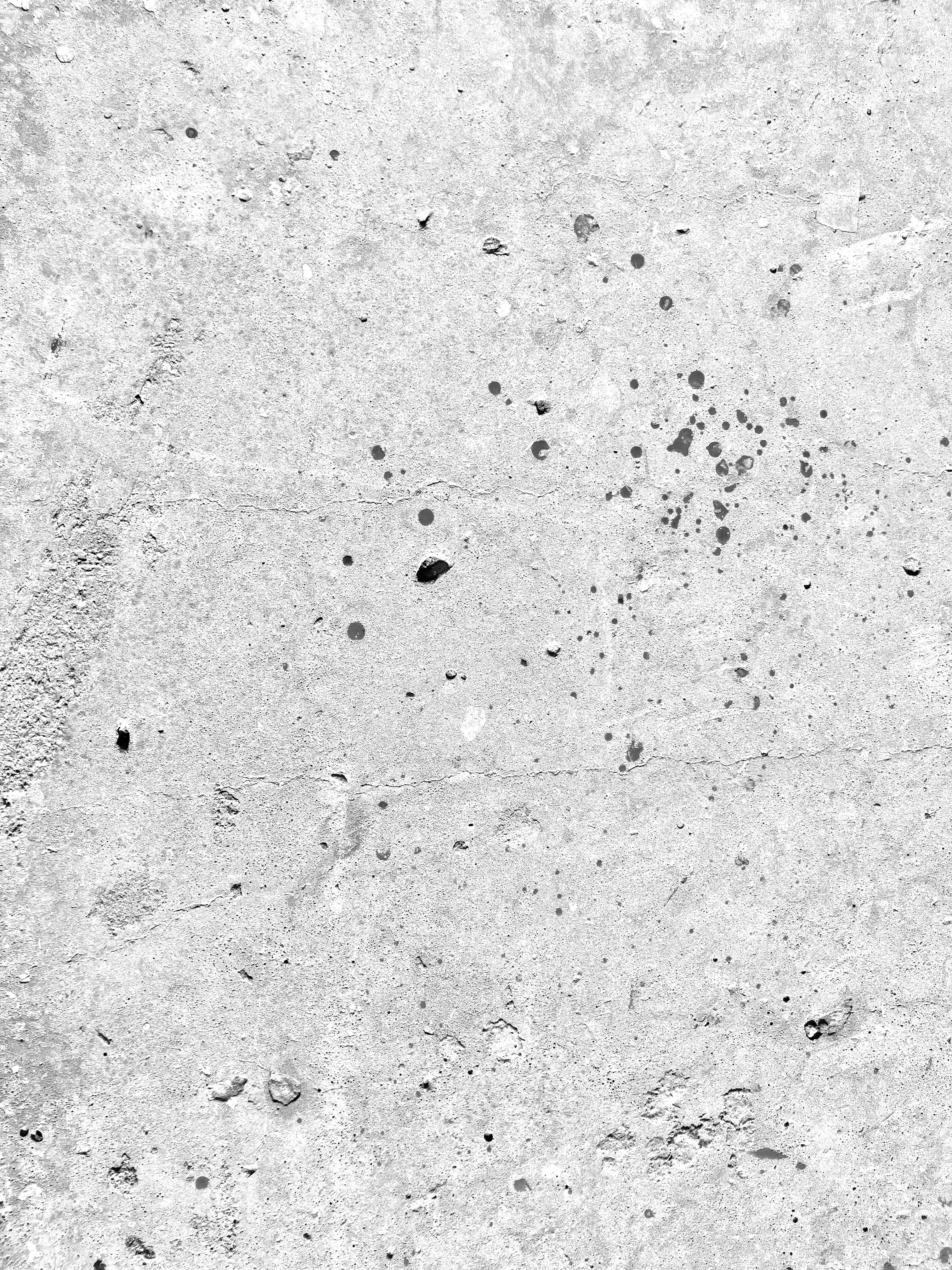

(Praise for Viti’s prior Tenement translations.)
![]()
![]()
![]()
‘Today,’ we read in La rabbia, Pasolini’s remarkable set of poems composed in 1962 to accompany his film by that title, ‘only four thousand subscribers have televised moving images in their homes; in a year they will be in the tens of thousands.’ And then the poet corrects the line: ‘No—in their millions. Millions of candidates for the death of the soul.’ Sixty years later, in the age of TikTok and Instagram, those ‘candidates’ may well be in the billions. Indeed, what gives La rabbia its uncanny accuracy is that its vision, however exaggerated and extreme, might well characterise our own moment in history. Not only ‘in my country, my country that’s called Italy’ (Pasolini’s refrain), but all over the world, the ‘noble’ solutions of the late 1940s and ‘50s, with their UN charter, their Marshall Plan, and their call for No More Wars, now seem to have been little more than Band-Aids that left things pretty much as they were. Whether he is dealing with the failed Hungarian Revolution or the Algerian War, or with the ‘new problem [that] breaks out in the world. It is called colour,’ Pasolini sees the real enemy as normality—the normality or qualunquismo that accepts things as they are. In Cristina Viti’s excellent translation, Pasolini’s anger would be devastating, were it not for the proviso that poetry can change consciousness. It is poetry, La rabbia insists, that provides the counterweight to the darkness that surrounds us.
(Marjorie Perloff on Pier Paolo Pasolini’s La rabbia / Anger)
An Anarchist Playbook is an excavation of future thinking. In its radical mode of communal translation, it recovers equally radical political energies.
(Adam Thirlwell on An Anarchist Playbook)
One of the most viscerally affecting collections of poems I have ever read. Devastatingly precise and unforgettable images emerge from every line. The Arabic and the English sit side by side on the pages of this book but the effect is deeper than language, it meets the reader in the heart. I wept reading this brilliant, natural, gifted young poet and wished her subject was something other than this atrocity visited upon her and her people. What is happening in Gaza is a genocide not a war, but not since Akhmatova have I read poetry that so potently reckons with the relationship between war and the body. They create a new category of literary grace out of the cataclysm. These are poems of fire and agony, bombing and starvation, but they are also poems of grace, cleverness, tenderness and yearning. A great international poet arrives with this collection, but it is also a landmark work of resistance. No human should have to write their poetry from inside death's dominion, but Batool Abu Akleen has done it and the result is truly astonishing.
(Max Porter on Batool Abu Akleen’s 48Kg.)
![]()
C.V. 2025.
![]()
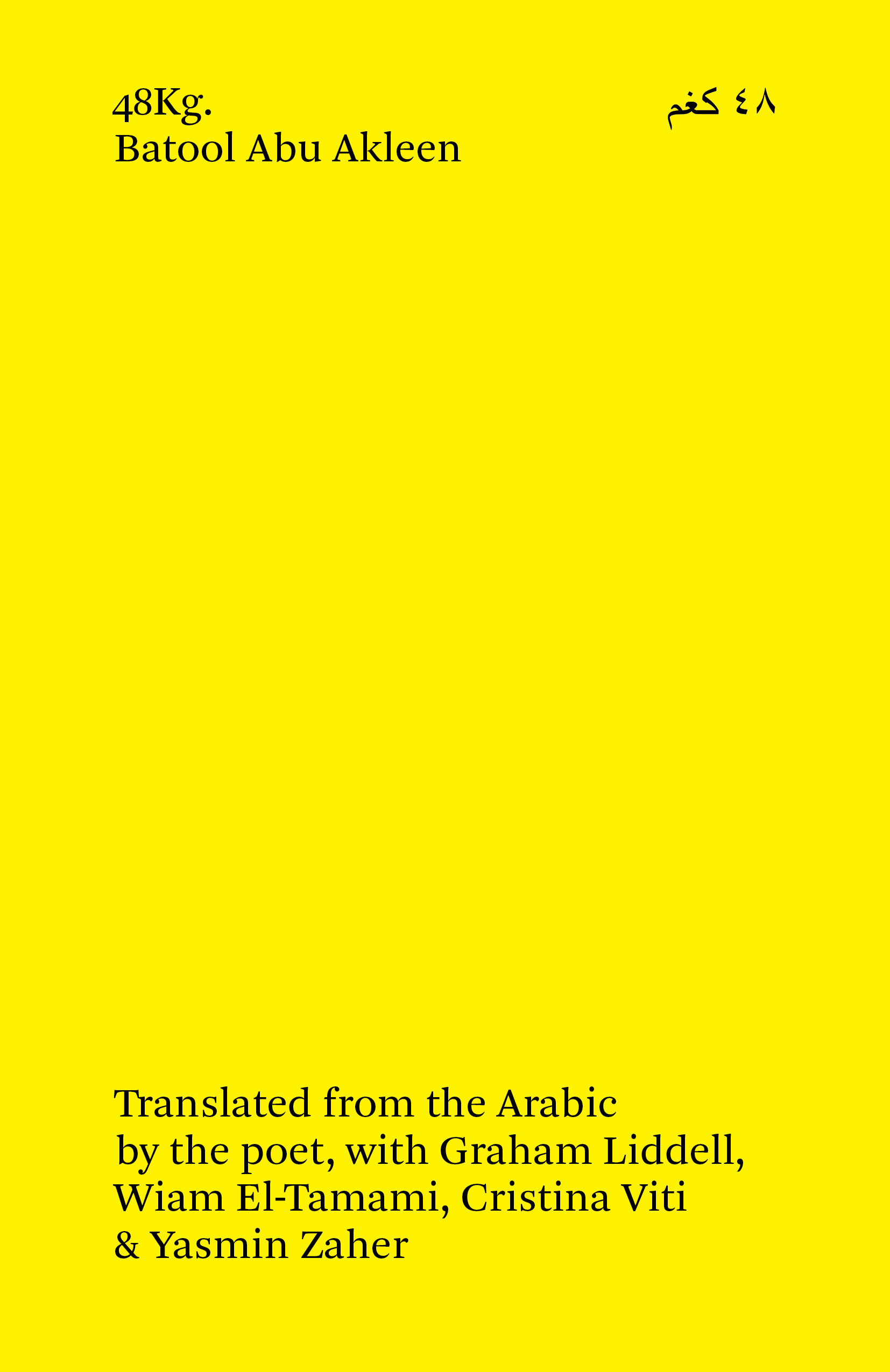
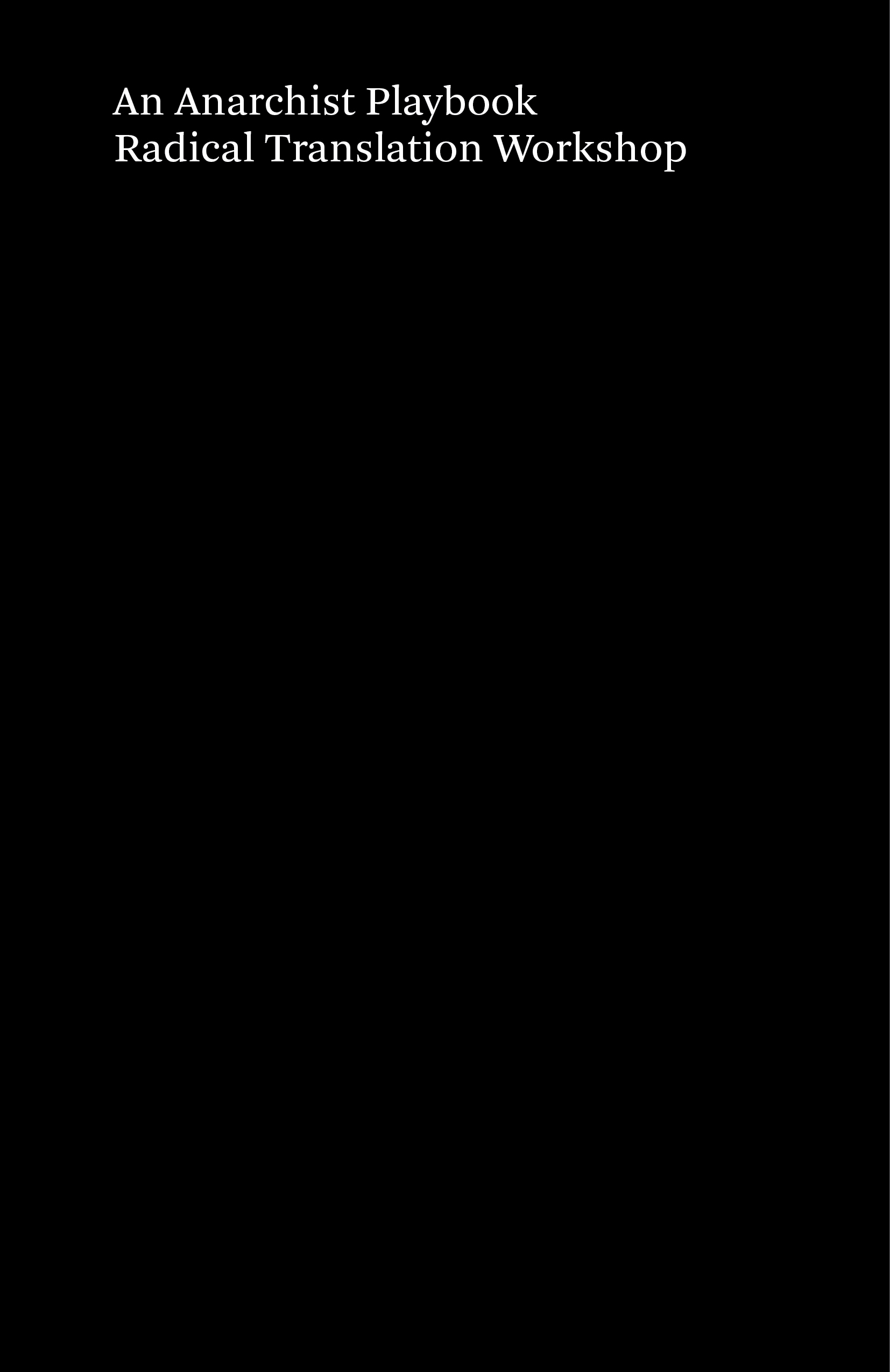
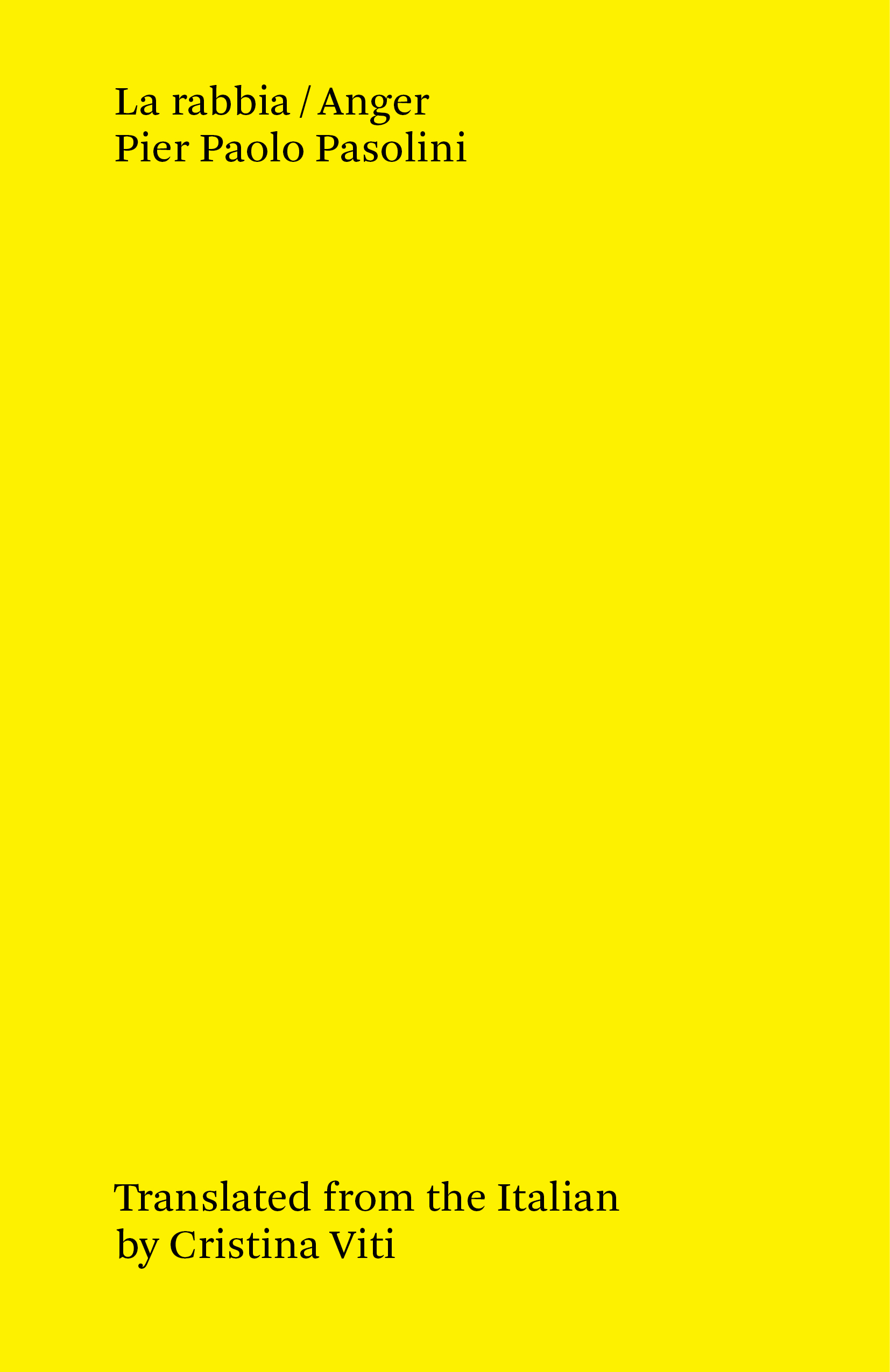
‘Today,’ we read in La rabbia, Pasolini’s remarkable set of poems composed in 1962 to accompany his film by that title, ‘only four thousand subscribers have televised moving images in their homes; in a year they will be in the tens of thousands.’ And then the poet corrects the line: ‘No—in their millions. Millions of candidates for the death of the soul.’ Sixty years later, in the age of TikTok and Instagram, those ‘candidates’ may well be in the billions. Indeed, what gives La rabbia its uncanny accuracy is that its vision, however exaggerated and extreme, might well characterise our own moment in history. Not only ‘in my country, my country that’s called Italy’ (Pasolini’s refrain), but all over the world, the ‘noble’ solutions of the late 1940s and ‘50s, with their UN charter, their Marshall Plan, and their call for No More Wars, now seem to have been little more than Band-Aids that left things pretty much as they were. Whether he is dealing with the failed Hungarian Revolution or the Algerian War, or with the ‘new problem [that] breaks out in the world. It is called colour,’ Pasolini sees the real enemy as normality—the normality or qualunquismo that accepts things as they are. In Cristina Viti’s excellent translation, Pasolini’s anger would be devastating, were it not for the proviso that poetry can change consciousness. It is poetry, La rabbia insists, that provides the counterweight to the darkness that surrounds us.
(Marjorie Perloff on Pier Paolo Pasolini’s La rabbia / Anger)
An Anarchist Playbook is an excavation of future thinking. In its radical mode of communal translation, it recovers equally radical political energies.
(Adam Thirlwell on An Anarchist Playbook)
One of the most viscerally affecting collections of poems I have ever read. Devastatingly precise and unforgettable images emerge from every line. The Arabic and the English sit side by side on the pages of this book but the effect is deeper than language, it meets the reader in the heart. I wept reading this brilliant, natural, gifted young poet and wished her subject was something other than this atrocity visited upon her and her people. What is happening in Gaza is a genocide not a war, but not since Akhmatova have I read poetry that so potently reckons with the relationship between war and the body. They create a new category of literary grace out of the cataclysm. These are poems of fire and agony, bombing and starvation, but they are also poems of grace, cleverness, tenderness and yearning. A great international poet arrives with this collection, but it is also a landmark work of resistance. No human should have to write their poetry from inside death's dominion, but Batool Abu Akleen has done it and the result is truly astonishing.
(Max Porter on Batool Abu Akleen’s 48Kg.)

C.V. 2025.


